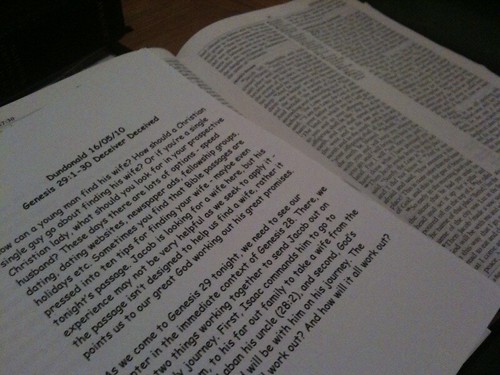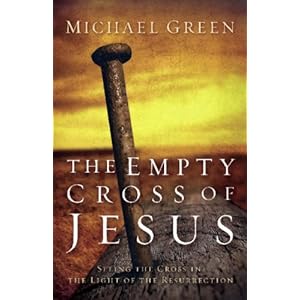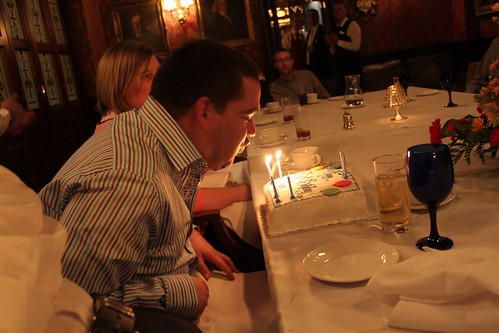What do buying flowers, giving a back rub, writing a song; making a meal, little surprises, and surrendering the remote control all got in common? They’re just a few of the ways that people may demonstrate their love for their partner, according to a leading website. Some of them may seem silly, but we’re told it’s the thought that counts. Actions can speak louder than words.
Tonight in our reading, right at the very end of John’s gospel, we find Jesus asking Peter: ‘Do you love me?’ We’re going to think about the way in which Peter will demonstrate his love for the Lord, and what that means for us, as we too seek to love and serve the Lord.
As we begin, though, we need to take a step back, and think about where we are as our reading opens. Last week, Johnny helped us to see that we’re in Galilee, back where Peter first met with Jesus, where the call had gone out to follow him. That was three years before, and a lot has happened since then. Peter has followed Jesus, making lots of brash claims, sticking both feet in it lots of times, and then they went up to Jerusalem, where Jesus was arrested. Despite Peter’s bold claims that he would remain with Jesus and die with him, even if all the other disciples fell away, it turned out that Peter had faltered, denying Jesus three times. Jesus was crucified, but has been raised, yet Peter and some of the other disciples have gone back to fishing.
They’ve had their beach barbecue breakfast with Jesus, beside the charcoal fire (v 9 cf 18:18), a detail that reminds us of Peter’s denials. And it’s then that Jesus asks Peter the question. We see it in verse 15. Do you notice that Jesus addresses him as Simon (‘to hear’) not as Peter (‘rock’). ‘Simon, son of John, do you love me more than these?’ Do you love me more than these other disciples love me? You’ve previously claimed as much, what about now.
Gone is the brash boldness, the overconfidence. Instead, the reply is a simple ‘Yes, Lord; you know that I love you.’ Now no comparison with others; no over the top statements, just a simple yes, you know I love you. Three times, Jesus asks the question, and three times Peter answers in the same way (with an addition on the third occasion) - You know that I love you.
Jesus restores Peter following his public denials, the question coming each time giving the opportunity to reverse the desperate denial and express his love for the Lord. Isn’t there great comfort here for the believer, the grace given in restoration, sins forgiven, through the love of the Lord.
Now if you were listening closely, or if you’ve got the text open in front of you, you’ll notice that there is something else said to Peter each time, and here we see what it means to love the Lord. In summary, to love the Lord is to live and die for his glory.
Simon, son of John, do you love me? Yes Lord, you know that I love you. Do you see what comes next? ‘Feed my lambs... Tend my sheep... Feed my sheep.’ Peter is given a job to do, a task to complete - he is called to live for the glory of the Lord by serving the Lord’s people. Remember where he is - sitting on the shore of Lake Galilee, having returned to his former way of life, back to fishing again.
Just as that call came before to leave his nets and become a fisher of men, so now he is called to leave the boat and become an under-shepherd to the good shepherd. To feed and tend ‘my’ sheep, not his. To feed the lambs and sheep, to give them what will give them life and health and strength; to tend and care for the sheep - the people of God.
It’s a task Peter took very seriously, as we see from his first letter, as he passes this task on to the next generation: ‘So I exhort the elders among you, as a fellow elder and a witness of the sufferings of Christ... shepherd the flock of God that is among you.’ Do you see how he points to the chief Shepherd (1 Peter 5:1-4)?
For Peter, he demonstrated his love for the Lord by living for the glory of the Lord, loving the Lord and his people, and serving them. While you may not be a pastor, the call for all of us is to love the Lord and his people, serving them in the ways the Lord shows us, using the gifts he has given us. It could be in hospitality, teaching, encouragement, prayer, counselling, helping in practical ways, music, giving, or any number of ways.
What is it that the Lord is saying to you, as you answer his question: ‘Do you love me?’ How will you demonstrate your love for him?
So far it’s all good, all straightforward, isn’t it? To love the Lord is to live for his glory. But we may never have imagined what comes next. In fact, we may not want to think about what comes next. To love the Lord is to live for his glory, and die for his glory.
Verse 18: ‘Truly, truly, I say to you, when you were young, you used to dress yourself and walk wherever you wanted, but when you are old, you will stretch out your hands, and another will dress you and carry you where you do not want to go.’ Up to now, this may even just appear to be reflecting the signs of growing old, which some of us are finding every day - no longer able to do some of the things we loved doing, not being able to dress ourselves, being helped and taken about, losing independence.
But John’s comment puts it all into perspective, helps us see what Jesus is actually saying to Peter. ‘This he said to show by what kind of death he was to glorify God.’ Standing before Peter the apostle, years later, lies the cross, where he too will be martyred, executed by Nero. Alongside the call to live for God’s glory is the call to die for God’s glory. Respectfully, and seriously, I ask, will you die well?
You see, we may not face the death of martyrdom (which thousands of our brothers and sisters will face), yet how we die can display our love for the Lord. Through the week, I was reading (on Tim’s blog) of Bishop Nicholas Ridley, one of the English Protestant martyrs. The night before he died, his brother offered to stay with him, but Ridley was sure: ‘Let me go quietly to bed to sleep my last night on earth in peace.’ In the words of the hymn: ‘No guilt in life, no fear in death, Jesus commands my destiny.’
Or think of (more recently), Mark Ashton, the vicar of St Andrew the Great Church in Cambridge, who died for the glory of God, not at the hands of persecution, but through cancer. So you see, the call of the risen Lord is the same call from before, when he calls us to take up our cross and follow him, in whatever circumstances we find ourselves, in the hard times as well as the good, ready to glorify God in our death as much as in our life.
The call goes out, not just to Peter, but to all the church, and all of us individually - to love the Lord and live and die for his glory. With Peter, the way he did that was by leading the early church and dying at the hands of Nero. But Peter slips into a mistake that each of us can so easily fall into. Not content to faithfully follow and get on with what he has been called to do, we see in verse 20 that he wants to know about John, the disciples whom Jesus loved. ‘Lord, what about this man?’ I may be called to die by stretching out my hands on a cross - what about him?
You might look at someone else and think, well, I’ve got it tough compared to Mrs Jones - what about her? And Jesus, as graciously as ever, tells Peter to mind his own business: ‘If it is my will that he remain until I come, what is that to you? You follow me!’ So while Peter’s death is certain, what would it matter to Peter if John is going to remain alive until Jesus returns? Peter’s concern is to follow Jesus, not worry about John’s future.
If I can slightly paraphrase Hebrews 12 here: ‘let us run with endurance the race that is set before us (each one of us individually), looking to Jesus, the founder and perfecter of our faith.’ (Heb 12: 1)
By the time John is writing, Peter has indeed been martyred, and the rumour is circulating that Jesus said this about John. Now imagine that John is nearing death, and Jesus still hasn’t appeared - it would be a bit like Harold Camping, wouldn’t it? But John reminds us that Jesus didn’t make any such promise. Just as Peter glorified Jesus by his martyrdom, so John will glorify Jesus through living to a grand old age, dying peacefully in his bed. It’s not about being jealous of another’s walk, it’s about encouraging one another in the path set before us by our Lord.
That question Jesus asked Peter echoes down through the years so that we’re confronted with it this evening: Do you love me? The precise ways in which we demonstrate our love will be different for each of us, but the overall summary still stands: Love for Jesus is shown in living for his glory (by serving his people) and dying for his glory.
At the end of verse 19, we hear those two words Peter had previously heard in the same place, when it had all began. Now he has been restored by the love of the Lord demonstrated in the cross, and is sent to demonstrate his love for the Lord by living and dying for his glory. And those words sound out for us as well. Jesus says: ‘Follow me.’
This sermon was preached in St Elizabeth's Church, Dundonald on Sunday 29th May 2011.














